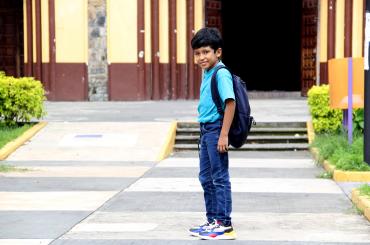
RCTs
-

Timing matters: Long-term impacts of Conditional Cash Transfers in Nicaragua
Conditional cash transfers in Nicaragua during primary school led to higher schooling and earnings in adulthood, but mechanisms differed by sex
-

Designing financial services and social protection programmes to enhance women’s economic empowerment
Financial inclusion programmes must be designed to ensure that women can act with financial independence
-

Training policymakers in econometrics: Evidence from Pakistan
Training deputy ministers in the school of thought associated with the credibility revolution increases demand for and responsiveness to causal evidence
-

Implementing poverty-reduction interventions at scale: Challenges and considerations
Programmes aimed at alleviating poverty must be designed in cost-effective ways before they can be used by government as viable public policy at scale
-

Adaptive experiments for policy research
Adaptive sampling has the potential to ensure that experiments better meet the learning goals of policymakers and are more beneficial to participants at the same time
-

Are there micro solutions to poverty? Evidence from a long-term follow-up of the Youth Opportunities Programme in Uganda
Long-term results from a cash grant programme in Uganda suggests that poverty may be bigger than the issues these types of programmes can address
-

RCTs in the long run
RCTs have revolutionised development policy, but do the interventions that work in the short run have a benefit 10 or 20 years later?
-

Alleviating poverty with experimental research: The 2019 Nobel laureates
The Nobel nomination’s emphasis on the practical applications of Banerjee’s, Duflo’s and Kremer’s methods represents a monumental and welcome change
-

What does the 2019 Nobel mean for development economics?
Why have Esther Duflo, Abhijit Banerjee and Michael Kremer been awarded the 2019 Nobel Prize in Economics? And what does this mean for development economics?